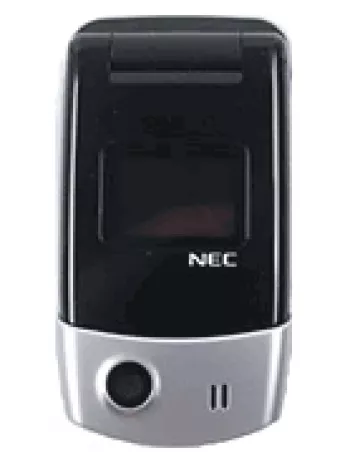
Overview of NEC N109
The NEC N109 is a feature phone that was introduced by NEC in the third quarter of 2004. It was designed to cater to users who required basic phone functionalities with a few additional features common in mobile technology at that time. Although it was discontinued, the NEC N109 remains a significant piece of technology because it represents the early 2000s era in mobile phone design and functionality.
Design and Build
The NEC N109 sports a compact and lightweight design, measuring 102 x 45 x 15 mm and weighing only 73 grams. This made it easy to carry around, fitting comfortably in the user’s hand or pocket. The phone was available in three distinguished colors: Silver, Black, and Blue, allowing for some degree of personal customization.
Display
Equipped with a CSTN display capable of showing 65K colors, the NEC N109 had a resolution of 128 x 160 pixels. The colorful screen was a notable feature for a phone from its era, though it may seem quite basic by modern standards.
Network and Connectivity
The phone supported GSM technology on 900/1800 bands, which was typical for the period it was released. While it offered GPRS for basic internet connectivity needs, there was no EDGE support. Connectivity options were limited, with no Bluetooth, WLAN, GPS, or USB port, though it did include an infrared port for data transfer and connectivity, which was a common feature at that time.
Camera
The NEC N109 was equipped with a VGA camera that could take photos with a resolution of up to 0.3MP. This camera also featured an LED flash, a useful addition for low-light photography. While it offered video recording capabilities too, the quality was modest, serving basic photography needs.
Sound and Alerts
While the phone did not include a loudspeaker or a 3.5mm headphone jack, it supported vibration alerts and downloadable polyphonic ringtones. Users could also compose their own ringtones, a popular feature at the time, giving them the ability to personalize their devices further.
Memory and Storage
The NEC N109 came with an internal storage of 2MB, which was sufficient for storing contacts and a limited number of messages. There was no option for expanding the memory as no card slot was included, a limitation for users needing more storage space. The phone's memory could store up to 500 contacts, along with records of the last 20 dialed, received, and missed calls.
Battery Life
The phone was powered by a removable Li-Ion 570 mAh battery, which provided a standby time of up to 120 hours and a talk time of up to 2 hours and 40 minutes. This battery performance was typical for feature phones of that time, offering decent life between charges for basic phone usage.
Operating System and Features
The NEC N109 operated on a basic mobile operating system tailored for feature phones, providing essential functionalities like SMS, EMS, and MMS messaging. It also supported WAP 1.2.1 for browsing, although the browsing capabilities were quite limited. The phone came with pre-installed games and allowed for downloading additional games, offering some entertainment options.
Additional Features
Despite being a feature phone, the NEC N109 supported Java through MIDP 1.0, which enabled some app-like functionalities via downloadable Java applications. Though basic, these features provided users with a taste of customization and personalization not commonly found in entry-level devices.
Conclusion
While the NEC N109 may not stand out in today's high-tech smartphone market, it remains a representation of the advances and limitations of early 2000s mobile phone technology. With its simple design and basic feature set, it appealed to those who needed a reliable mobile phone for fundamental communication needs. Its ease of use and straightforward functionalities make it a nostalgic device for mobile phone enthusiasts and collectors.
Key Features of NEC N109
- Compact and lightweight design with dimensions of 102 x 45 x 15 mm and weight of 73 g.
- GSM technology supporting 2G bands (GSM 900 / 1800).
- 65K colors CSTN display with a resolution of 128 x 160 pixels.
- VGA main camera with LED flash and video capabilities.
- Infrared port for wireless data transfer.
- Support for SMS, EMS, and MMS messaging.
- Java support (MIDP 1.0) for downloadable games and applications.
- Removable Li-Ion 570 mAh battery providing up to 120 hours standby and up to 2 hours 40 minutes talk time.
- Available in three colors: Silver, Black, Blue.
Disadvantages of NEC N109
- No EDGE support for faster data connectivity.
- The device is discontinued, limiting availability and support.
- Display uses CSTN technology, which may offer lower quality viewing compared to modern screens.
- No expandable storage with card slot; limited internal memory of 2MB.
- VGA main camera lacks higher resolution capabilities.
- No front or selfie camera available.
- Lack of loudspeaker.
- No 3.5mm headphone jack for audio connectivity.
- No WLAN (Wi-Fi) support for internet connectivity.
- No Bluetooth capability for wireless connection to other devices.
- No GPS positioning or related features.
- No FM radio for listening to broadcasts.
- Limited battery duration with only up to 2 hours and 40 minutes of talk time.

View Also
More Phones
All Rights Reserved +14266 Phones © Mobilawy 2025

























